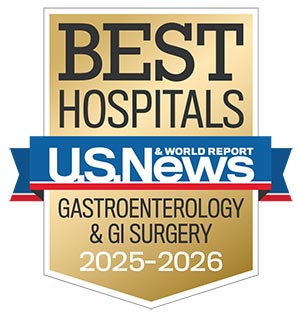Variants of Unknown Significance (VUS) and Other Uncertain Findings
The majority of variants of uncertain significance (VUS) end up being normal polymorphisms that are not linked to increased cancer risk. Rarely, a VUS is later reclassified as a pathogenic variant that would then inform medical management recommendations. In these cases, patients with the reclassified VUS are contacted for follow-up consultation, sometimes years after the gene test was performed.
The presence of a newly identified pathogenic variant can also raise difficulties for advising patients. The result may be found in a gene for which we do not yet appreciate the full spectrum of cancers and the lifetime risks associated with these cancers, and screening recommendations are not necessarily developed.
Further, multi-gene panel testing can result in a variety of unexpected findings. For example, a pathogenic variant may be found in a breast cancer susceptibility gene in a family with only colorectal cancer. Conversely, a pathogenic variant that predisposes to colorectal cancer may be found in a family with breast cancer only. Patients have also been reported where a pathogenic variant was detected in the CDH1 gene that predisposes to hereditary diffuse gastric cancer and lobular breast cancer, where prophylactic gastrectomy is recommended after 20 years of age, and yet the family is devoid of gastric cancer. Are these patients best served by prophylactic gastrectomy? The question remains unanswered and clinical management is left up to the best judgement of care providers and the individual patient.
Related reading on VUS and case examples:
- Young EL, Feng BJ, Stark AW, Damiola F, Durand G, Forey N, Francy TC, Gammon A, Kohlmann WK, Kaphingst KA, McKay-Chopin S, Nguyen-Dumont T, Oliver J, Paquette AM, Pertesi M, Robinot N, Rosenthal JS, Vallee M, Voegele C, Hopper JL, Southey MC, Andrulis IL, John EM, Hashibe M, Gertz J; Breast Cancer Family Registry, Le Calvez-Kelm F, Lesueur F, Goldgar DE, Tavtigian SV. Multigene testing of moderate-risk genes: be mindful of the missense. J Med Genet. 2016 Jan 19. piijmedgenet-2015-103398. doi: 10.1136/jmedgenet-2015-103398. [Epub ahead of print] PubMed PMID: 26787654.
- Slavin TP, Niell-Swiller M, Solomon I, Nehoray B, Rybak C, Blazer KR, Weitzel JN. Clinical Application of Multigene Panels: Challenges of Next-Generation Counseling and Cancer Risk Management. Front Oncol. 2015 Sep 29;5:208. doi: 10.3389/fonc.2015.00208. eCollection 2015. Erratum in: Front Oncol. 2015;5:271.

